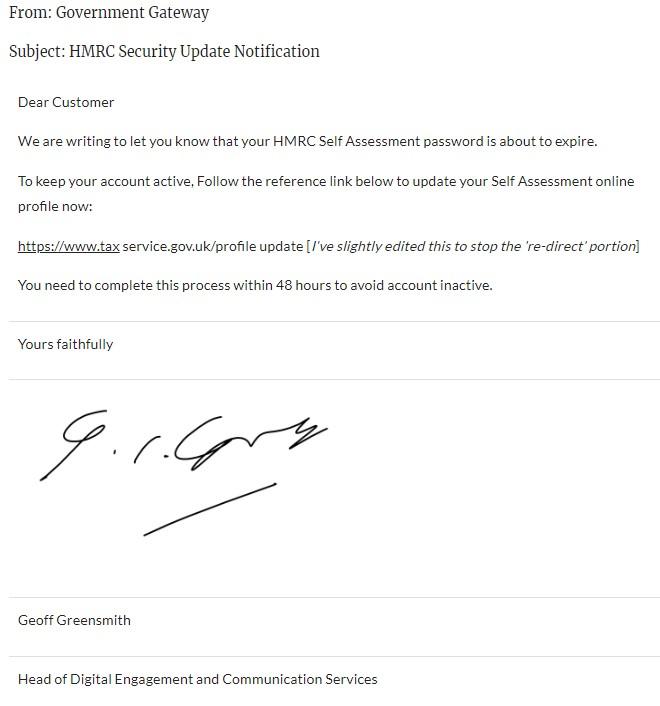[27.07.23]
It’s a few years since we heard Graham Fern, an expert in cyber security, talk to us about how we can protect ourselves. As he predicted as we become more savvy in terms of cyber security, the scammers will also become more savvy and sophisticated.
In the past, it was fairly easy to spot fake emails from HMRC or financial institutions. The give-aways were poorly spelled text, clumsy imitations of logos or incorrect information. However, thanks to a range of new tools and an increased awareness of vulnerabilities such as deadlines, cybercriminals have unleashed what trade body UK Finance has labelled an “epidemic of fraud”, costing UK consumers £1.2bn last year.
We have been alerted to a scam focused on self assessment tax returns. The scammer sends a very official looking email to the victim – below is an example – the link that the scammer provided has been edited:

The email looked genuine – and the link looked genuine. However, if the recipient clicked on the link, it took them to a site that had nothing to do with HMRC.
The lesson here, as always, is be very suspicious of any link you are sent. Do not click on the link, instead, using a PC or laptop, hover your cursor over the link, the url destination should appear.
If you’re unsure about an email claiming to be from HMRC forward it to phishing@hmrc.gov.uk, or you can report a tax scam phone call on gov.uk.
It is also worth remembering that HMRC has stated that it will never ring anyone out of the blue making threats or asking them to transfer money.










Leave a comment